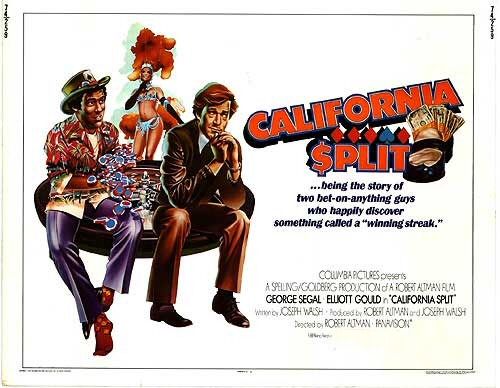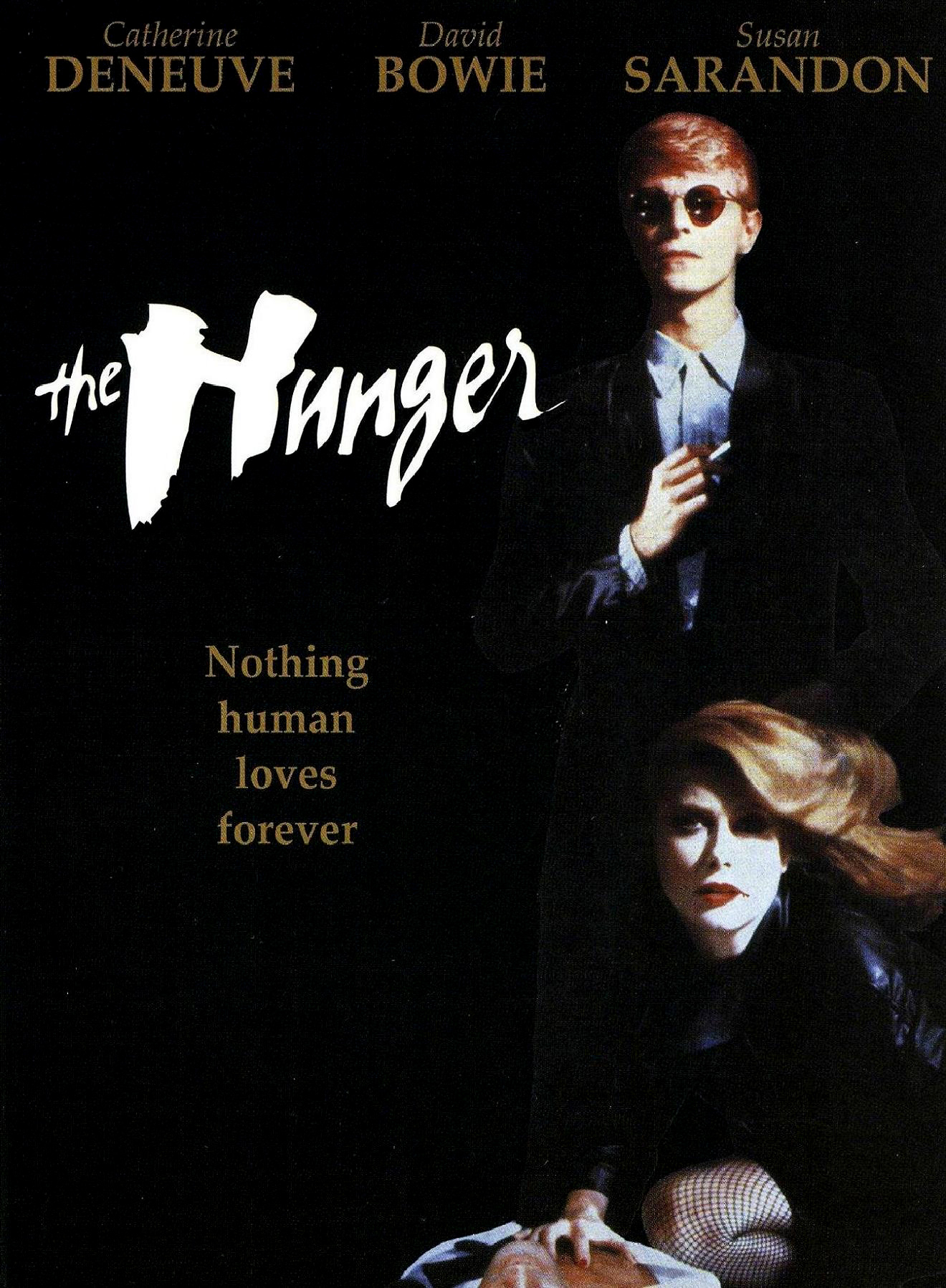Revisit: California Split

A Columbia Pictures release 1974
Directed by Robert Altman
Written by Joseph Walsh
A down on his luck gambler partners with free spirit on a winning streak, but finds himself deep in debt. As a final act of desperation, he pawns most of his possessions and heads to Reno for the poker game of a lifetime.
Elliot Gould and George Segal shine in this affable comedy-drama about gambling addiction. The two make a great on screen pair, with Gould playing the fast-talking, easy, sleazy know-it-all against Segal's excitable but straight laced persona. Add to the mix Altman's meandering, multi-layered audio, long takes and tracking shots -- a perfect match for the film's loud, chaotic casino settings -- and you get a pretty unique buddy picture.
The story is pretty simple: an amateur gambler meets another and find they make perfectly profitable partners. Soon enough the pairing goes sour and the two must part ways. While Gould pretty much sticks to what he does best (re: wisecracks), Segal gets to stretch his chops a bit once he gets in too deep. The film doesn't really aim to make any poignant commentary -- one scene between a mournful Segal and a loud, foul-mouthed female alcoholic seems to make a statement on the blind nature of addiction -- but it does do some interesting things to the buddy picture, namely in the fall-out ending.
While not one of Altman's landmark pictures, California Split exhibits much of his trademark style and motifs at a more palatable pace for broader audiences. If you're new to Altman, this isn't a bad place to start. I'd recommend it for the Gould & Segal pairing as well.



